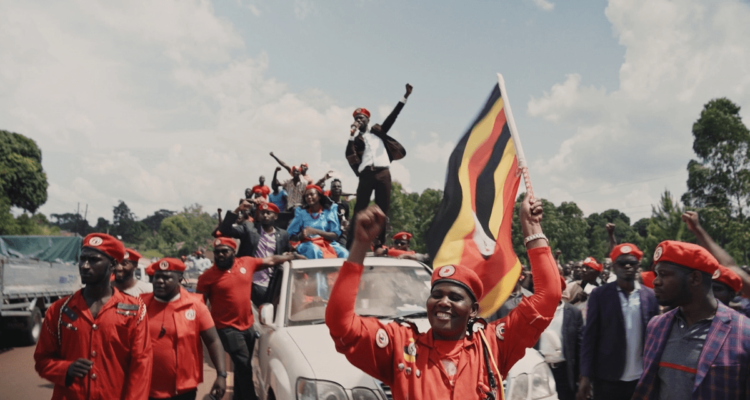Moses Bwayo and Christopher Sharp’s documentary “Bobi Wine: Ghetto President” is a feat of cinematic journalism that captures a tumultuous timeline of events while keeping the focus on its titular subject. Going by the stage name Bobi Wine, Robert Kyagulanyi Ssentamu is a wildly popular singer in Uganda who is voted into office and becomes a major figure in the political party that opposes its president, General Yoweri Museveni. Wine and others disagree with how Museveni has run the country for over 35 years, with more terms at stake. Bobi Wine bravely mounts a presidential campaign against him, and it nearly costs him his life.
READ MORE: Venice Film Festival Preview: 16 Must-See Films To Watch
With its seamless mix of original footage and news material, “Bobi Wine: Ghetto President” provides the complete picture of the heroism and alternate corruption within this national narrative, unfolding over many months. There are numerous times when Bobi Wine is arrested and imprisoned, or his campaign supporters suddenly become targets. The documentary establishes a constant state of danger for him and others, making you appreciate how committed he is to the cause and to the fire that cannot die as freedom would go with it. Even when Bobi Wine has to travel to America for medical attention—to recover from the damage done to his body in a military prison—he remains dedicated and focused.
“Bobi Wine: Ghetto President” is also a universally relevant portrait of someone who uses art to unite people. Bobi Wine’s catchy anthems for freedom and resilience are given extensive play in the documentary, with the lyrics splashed on the screen. And as the timeline shows Wine’s popularity growing throughout the nation, the film also captures the power art can have in uniting people and firing them up. When Bobi Wine speaks at a podium, one cannot see the end of his followers at the horizon, and they cheer for him and sing his catchy anthems of freedom and hope.
READ MORE: Fall 2022 Preview: 60+ Must-See Films To Watch
The film offers a harsh lesson on how nations with constitutions and democracy on the label can fall into such disarray from tyranny. As Wine’s presence becomes even more dangerous, the gross power of a military regime becomes all the more glaring. We see countless arrests of those who challenge General Museveni’s ways, along with disturbing violence. The documentary’s editing provides all of the space for frightening footage of people being shot at by police forces, who then claim in press conferences to have that right. “Bobi Wine: Ghetto President” takes on the compelling edge of a political thriller, albeit with actual harrowing events that sometimes burst out of nowhere but are characteristic of the many injustices this documentary brings to light.
In the scope of other 2022 political documentaries, “Bobi Wine: Ghetto President” has the most in common with Daniel Roher’s “Navalny,” about a politician who ran against Putin—becoming his most outspoken critic— and was then poisoned and imprisoned after doxing his assassins and returning to Russia. “Bobi Wine: Ghetto President” has a similar, almost unbelievable, and powerful spirit of not giving in when governmental forces threaten you and rule with no control. This is a profile of unfathomable courage that deserves to be seen, in part to honor those who supported the film’s supply of footage and cannot be listed in the credits for fear of repercussion. It is a testament to not giving up and the strength of a people united—not just by a song, but by a deep belief in a just future. [B+]
Follow along with all our coverage of the 2022 Venice Film Festival

